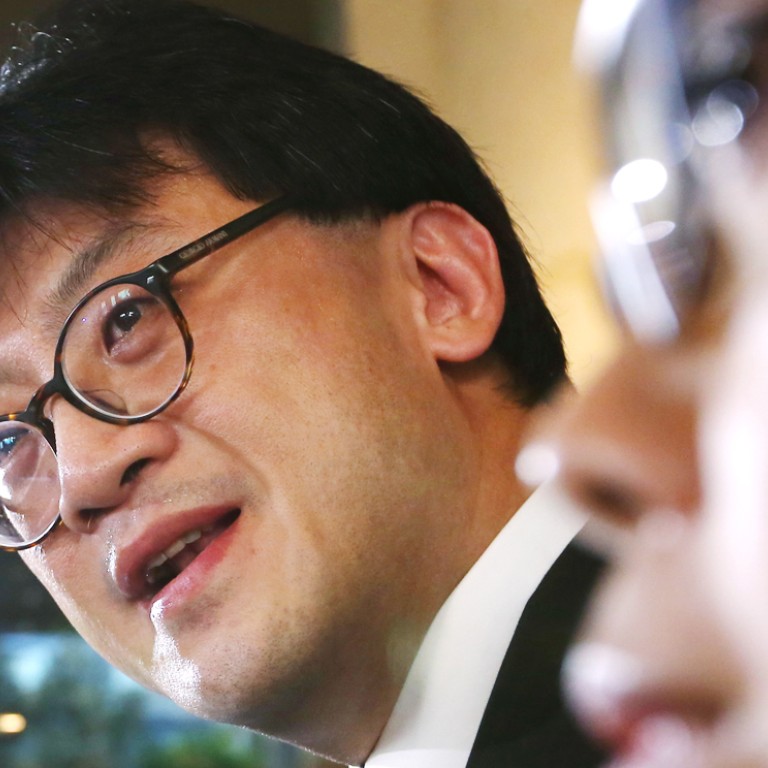
Barristers question legality of Beijing's model for reform
Bar Association chief tells Li Fei restrictions may be ‘unreasonable’ under international law
Mainland officials have failed to convince Hong Kong's barristers that its model for universal suffrage in the city is in line with international law, the Bar Association chairman says.

"It is seriously arguable that there are unreasonable restrictions [on the right to be elected] in the model," Shieh, accompanied by Bar Council members, told the media. "While Li reiterated [Beijing's] stance about national security, we told him that we were not convinced."
The meeting took more than an hour and came on the last day of Li's visit to explain the NPC Standing Committee's decision. It voted on Sunday to cap the number of candidates in 2017's one man, one vote election for chief executive at two or three - and they will need the support of more than half of the members of a 1,200-strong nominating committee based on the "small circle" election committee that chose Leung Chun-ying in 2012.
Shieh said his association queried whether the cap on candidates, the failure to update the nominating committee's composition and the need to secure over 50 per cent support could amount to "unreasonable restrictions" on the right to be elected as set down in the United Nations International Covenant on Civil and Political Rights. Hong Kong is covered by the treaty, though Beijing insists its provisions on elections don't apply.
Shieh noted it would be impossible for more than one candidate to meet the over-50 per cent threshold, unless committee members had multiple votes.
"Even if the members have two votes - unless they change their political view in a split second - they are likely to nominate people in the same part of the political spectrum," Shih added.
Justice Secretary Rimsky Yuen Kwok-keung said he did not think the model contained unreasonable restrictions. "If the Bar Association disagrees, does that mean it is legally unfeasible?" Yuen asked, noting that the courts had rejected its views in some cases.
Meanwhile, Democratic Party founding chairman Martin Lee Chu-ming accused the Standing Committee of failing to follow its own procedures.
Under its 2004 rules for reform, the Standing Committee can only "make a determination" on whether the Basic Law should be amended, in response to a report from the chief executive.
"The NPC is breaking its own rules," Lee, a barrister, said.

